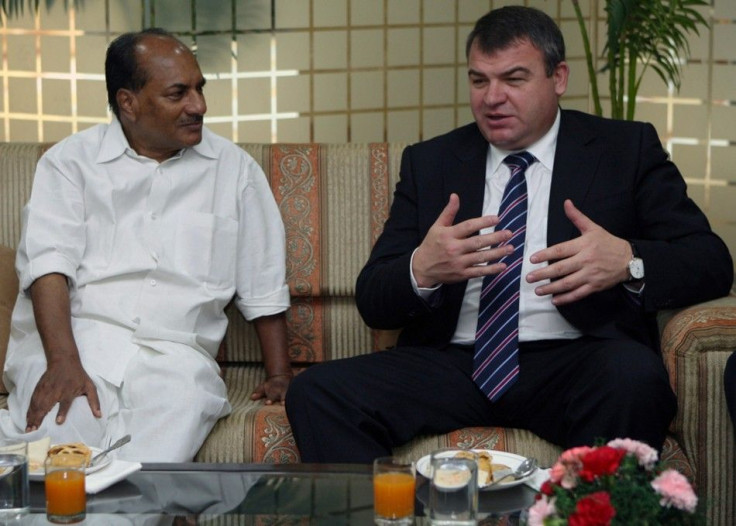India Joins Nuclear Submarine Community; Pakistan Alarmed

India has made another leap in its seemingly inexorable rise to military superpower by formally commissioning a Russian-made nuclear submarine.
At a coastal naval base in Visakhapatnam, India’s defense minister commissioned the INS Chakra II vessel.
This will be a big boost for the Indian navy, Antony told reporters at the ceremony.
The INS Chakra will ensure security and sovereignty of the country.”
The $1 billion, 8,140-tonne submarine, which can fire torpedoes, as well as nuclear-tipped cruise missiles, was leased by Moscow for a period of ten years.
With this [vessel] I can outrun any potential threat, said Captain P. Ashokan, the submarine's commander, said at the commissioning ceremony, which was also attended by the Russian ambassador, among other dignitaries.
The Indian government is nearly finished developing its own Arihant-class nuclear-powered submarine. The leased Russian sub will likely be used to help train Indian crews on the intricacies of submarine operation and technology. Both crafts are expected to be on patrol by the end of the year.
Our crews will get the experience of operating under water for several months at a go, unlike with the conventional diesel electric submarines, which have to come to surface at regular intervals, a navy official told the Press Trust of India.
According to reports, India is anxious to upgrade its maritime fleet in order to compete with the Chinese Navy, which India views as a threat to, among other things, its energy security in the region and access to key shipping lanes.
India decommissioned its last Russian-made vessel in 1991.
India has promised not to arm the submarines with nuclear weapons, only cruise missiles, in honor of international non-proliferation and security treaties.
However, Pakistan is reportedly alarmed by India’s embrace of nuclear submarine technology, warning it could lead to a dangerous arms race in South Asia.
In response to Pakistan’s fears, Antony told Indian media: “India does not believe in [an] arms race. We are not a confrontationist nation. We are a peace-loving nation....but, at the same time, the armed forces will be strengthened to meet any challenge. We have a vast land border. We have more than 7500 [kilometers] of coastline... We have to protect the sea lanes of our core area of interest.”
BBC reported that while Russia provides about 70 percent of India’s military hardware, New Delhi has been increasingly unhappy with delays in the procurement of such items. As such, India has been relying more on the U.S. and Israel to supply its arms in recent years.
Only five other nations on earth -- Britain, China, France, Russia and the US. -- have deployed nuclear submarines.
According to the World Nuclear Association, the U.S. has, by far, the most nuclear-powered submarines, with a fleet of 71. Russia is a distant second at 21; while China is believed to have ten.
© Copyright IBTimes 2024. All rights reserved.











